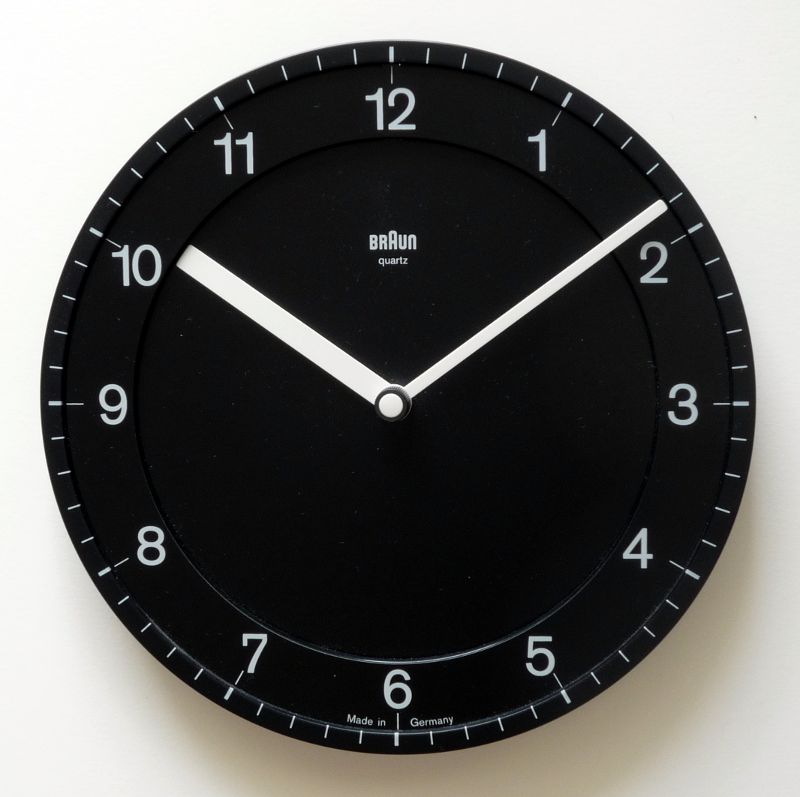2017 Nobel Prize awarded in science and medicine
Used with permission from Braun Wanduhr
This clock represents the circadian rhythm also known as the biological clock. It is important that we maintain a consistent circadian rhythm.
November 10, 2017
American scientists Jeffrey C Hall, Michael Rosbash and Michael W Young won the 2017 science and medicine Nobel Prize award for making an important discovery about the body’s circadian rhythm and its effect on living organisms.
The researchers discovered that sleep was more important than previously thought. They conducted a study using fruit flies to study a gene, known as the period gene, that directly impacts the biological clock. The gene was found to have a protein that grows in the cell at night during sleep and degrades during the day. This research also showed that other multi-cellular organisms have a biological clock that functions the same way as humans, which allows us to research the circadian rhythm in humans. The protein, also called PER, that they found, showed that the circadian rhythm worked differently at varying times during the day. The protein blocked the period gene during the day, but the period gene gained function again at night as the protein build up slowed down. Many other proteins are involved in this process, some helping PER slow down the period gene, and some stopping the accumulation of PER.
The circadian rhythm, also known as the biological clock, is basically the bodies clock that lets us know when to sleep, eat, or perform other daily functions. It is important for us to maintain a consistent schedule based on our eating and sleep patterns to maintain the circadian rhythm.
In addition to regulating sleep patterns, the circadian rhythm is also involved in managing metabolism, hormone levels, body temperature, and behavior. If we don’t follow our body’s natural clock, it can cause a rise in blood pressure and alter our metabolic system. The following factors may contribute to this complication: working a late shift, experiencing jet lag, or staying up late to study for a test.
A non-consistent circadian rhythm can also lead to weight gain and possibly cause an individual to develop diabetes. If a person stays up late and eats later than usual, it will confuse the biological clock which regulates metabolism. Staying up too late too many times can drastically impact your metabolism which causes weight gain.
As high school students, it is important to start developing healthy habits at this young age. However, with many hours of rigorous coursework students’ are operating on inconsistent sleep schedules each day. Sophomore, Megan Alexander stated, “I go to bed at 11 but sometimes I get so much homework that I have to stay up past one in the morning.” Also, when students were asked if they slept at the same times on weekends almost every student said no. It is important that we continue to be on the same sleep schedule on the weekends because this maintains a constant circadian rhythm. Students often have an irregular sleep schedule, going to bed at a different time every night because of homework stress and extra curricular activities on top of maintaining a job and social life. Hopefully these new findings will encourage students to follow a better sleep schedule to the best of their ability.





